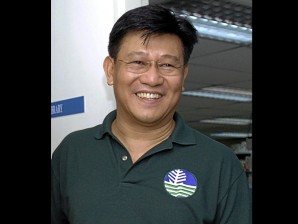Enroll in science courses.
Government officials made this suggestion to senior high school students contemplating a university course.
Environment Secretary Ramon Paje urged students to enroll in courses like geology, life sciences and physics, saying there was a high demand for graduates of these courses.
The Department of Environment and Natural Resources and mining companies planning to do business in the Philippines badly need geologists.
“We have lost 86 geologists already. The private sector pirates them,” he said. “While we are very active in nursing and PTs (physical therapists), we are not conscious about geology and other sciences,” he added.
Because of the boom in the mining industry in recent years, geologists and engineers have become in demand, Paje said.
Mining firms, he said, pay as much as P100,000 a month to their geologists but the DENR can only give them a salary of P25,000.
Far too few
At present, the Mines and Geosciences Bureau has 68 geologists, far too few for a very geologically active country like the Philippines that constantly struggles with landslides, earthquakes and volcano eruptions.
Senator Francis Pangilinan, chairman of the Senate committee on food and agriculture, said college freshmen should consider a career in the agricultural sciences as food security will be a major issue in the coming years.
Filipino farmers, he said, need to be taught scientific innovations to maximize their yield and increase productivity.
“For us to increase both income and productivity of our farmers and fisherfolk, they need continuing research and product development that comes from the deployment by the Department of Agriculture scientists and engineers,” he said.
Labor Secretary Rosalinda Dimapilis-Baldoz also urged incoming college freshmen to take courses needed by emerging industries so they could land jobs after graduation.
Baldoz said the four industries seen to provide the most number of jobs in the long term were creative industries, strategic farming and fishing, power and utilities, and renewable energy.
Major drawbacks
“One of the major drawbacks that confront the Philippine labor market is jobs-and-skills mismatch. People earnestly seek jobs but overlook the fact that their skills do not meet the requirements of employers, Baldoz said in a statement on Monday.
“It is for this reason that we are trying to address the problem early on by advising our dear students to choose their schools and courses wisely,” she added.
Baldoz said the Commission on Higher Education reported that the 2,937,847 students enrolled in academic year 2010-2011 were still “concentrated in certain courses.”
These are business administration and related courses with 785,305 students, or 26.73 percent enrolled; education, science and teacher training, with 400,912 students, or 13.65 percent; and medical and health; allied courses with 363,147 students or 12.36 percent.
“This uneven concentration of students in these fields contributes to jobs-skills mismatch after graduation,” Baldoz said.
She said courses which would equip students with desired skills tailor-fit for emerging industries “comprise only a minimum share of student enrollees.”
These are information technology-related disciplines, with 376,046 students, or 12.80 percent enrolled; engineering and technology, with 354,218 students, or 12.06 percent; and other disciplines with 658,219 students or 22.40 percent.
“There are a multitude of opportunities out there. The key is to make the right choices,” she said.
